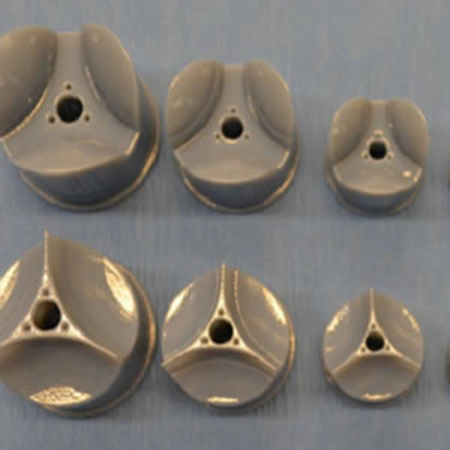Harvard researchers have developed a next-generation heart valve that accurately functions upon implantation and regenerates into long-lasting heart-like tissue, according to a study published in the journal Biomaterials. These biocompatible heart valves are called JetValves, which can be manufactured in all desired shapes and sizes, and take seconds to minutes to produce.
The goal is to provide customised, ready-to-use, regenerative heart valves much faster and at much lower cost than currently possible. At present, clinicians use either artificial prostheses or fixed animal and cadaver-sourced tissues to replace defective valves. While these prostheses can restore the function of the heart for a while, they are associated with adverse comorbidity and wear down and need to be replaced during invasive and expensive surgeries. Moreover, in children, implanted heart valve prostheses need to be replaced even more often as they cannot grow with the child.
A team led by Kevin Kit Parker, PhD, at Harvard University's Wyss Institute for Biologically Inspired Engineering recently developed a nanofibre fabrication technique to rapidly manufacture heart valves with regenerative and growth potential. For this study, researchers fabricated a valve-shaped nanofiber network that mimics the mechanical and chemical properties of the native valve extracellular matrix (ECM). The research team used the Parker lab's proprietary rotary jet spinning technology - in which a rotating nozzle extrudes an ECM solution into nanofibres that wrap themselves around heart valve-shaped mandrels.
"In this study, we used a combination of synthetic polymers and ECM proteins to fabricate biocompatible JetValves that are haemodynamically competent upon implantation and support cell migration and re-population in vitro. Importantly, we can make human-sized JetValves in minutes - much faster than possible for other regenerative prostheses," explained Parker.
To further develop and test the clinical potential of JetValves, Parker's team collaborated with the translational team of Simon P. Hoerstrup, MD, PhD, at the University of Zurich in Switzerland, which is a partner institution with the Wyss Institute. As a leader in regenerative heart prostheses, Hoerstrup and his team in Zurich have previously developed regenerative, tissue-engineered heart valves to replace mechanical and fixed-tissue heart valves.
The cross-disciplinary team successfully implanted JetValves in sheep using a minimally invasive technique and demonstrated that the valves functioned properly in the circulation and regenerated new tissue. "If we can replicate these results in humans, this technology could have invaluable benefits in minimising the number of paediatric re-operations," said Hoerstrup.
The team is now working towards a GMP-grade version of their customisable, scalable, and cost-effective manufacturing process that would enable deployment to a large patient population. In addition, the new heart valve would be compatible with minimally invasive procedures to serve both paediatric and adult patients.
Source: Wyss Institute for Biologically Inspired Engineering
Image credit: Wyss Institute at Harvard University
References:
Capulli, Andrew K. (2017) JetValve: Rapid manufacturing of biohybrid scaffolds for biomimetic heart valve replacement. Biomaterials. doi.org/10.1016/j.biomaterials.2017.04.033
Latest Articles
implantation, biocompatible, Heart Valves, heart-like tissue
Harvard researchers have developed a next-generation heart valve that accurately functions upon implantation and regenerates into long-lasting heart-like tissue, according to a study published in the journal Biomaterials.























